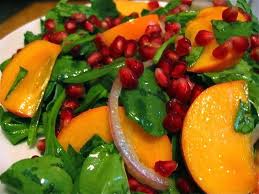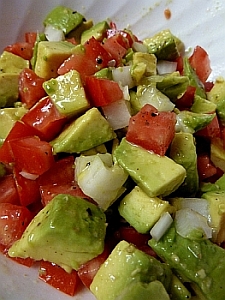How Do Food Enzymes Help Your Digestion?
 Digestion actually begins in the brain.
Digestion actually begins in the brain.
Even before tasting the first bite, the mere thought, sight or aroma of food triggers enzymes to be secreted and your saliva to flow.
Once food enters your mouth, the flow of saliva increases.
Saliva contains amylase, an enzyme for digesting carbohydrates.
Once you’ve swallowed, the amylase continues to break down your food.
Your pancreas and liver
Your pancreas manufactures and secretes specific digestive enzymes:
- amylase for starches and sugars
- protein-splitting enzymes such as trypsin and others
- lipase to break down fats into fatty acids and glycerol.
Your liver performs more than 500 functions, one of which is to make bile from cholesterol. Bile is necessary to emulsify and absorb fats.
The gallbladder’s function is to store and concentrate the bile.
Your stomach
In your stomach, the enzyme pepsin breaks down protein, and a hormone called gastrin stimulates the production of gastric juices.
Gastric juices are comprised of enzymes, hydrochloric acid (HCl), additional hormones, and a glycoprotein known as gastric intrinsic factor (GIF), which facilitates the absorption of Vitamin B12.
The stomach is all about acid, with a pH of between 1.5 and 3.
Two hormones are secreted, cholecystokinin (CCK) and secretin. CCK stimulates the gallbladder and liver to release bile. Secretin stimulates the pancreas to release bicarbonate.
The bicarbonate reduces the acidity in your stomach and brings the pH back up to a more neutral level of 7.
At this point, the enzyme portion of the pancreatic juice is released to digest carbohydrates, proteins and fats.
Only after your food has been fully digested can the nutrients be absorbed into your bloodstream and used by your body’s cells.
And giving your digestive system the support it needs means it will give you optimal performance.
OK, so let’s talk about enzymes
 Did you know that enzymes are deactivated at temperatures above 118°, thus making cooked and pasteurized foods devoid of enzymes?
Did you know that enzymes are deactivated at temperatures above 118°, thus making cooked and pasteurized foods devoid of enzymes?
In contrast, raw foods, such as fresh fruits and vegetables, contain a wide array of vitamins, minerals, enzymes, and beneficial bacteria.
Raw fermented foods can also provide effective support for your digestion, due to the additional enzymes produced through the culturing process.
This helps to reduce the digestive burden on your body.
Here’s a quote from “Nourishing Traditions” by Sally Fallon:
“Enzyme research has revealed the importance of certain raw and fermented foods in the diet.
The enzymes in raw food, particularly raw fermented food, help start the process of digestion and reduce the body’s need to produce digestive enzymes.”
The good news is that raw fermented vegetables and juices are not only a way to enhance your digestion by providing the enzymes you need - they’re also a delicious and varied addition to your everyday meals!
Disclaimer: These statements have not been evaluated by the Food and Drug Administration. These products are not intended to diagnose, treat, cure, or prevent any disease.
Information provided in this article is not designed to and does not provide medical advice, professional diagnosis, opinion, treatment, or services to you or to any other individual. This is general information for educational purposes only. The information provided is not a substitute for medical or professional care, and you should not use the information in place of a visit, call, consultation, or the advice of your physician or other healthcare provider. Wise Choice Marketing Inc is not liable or responsible for any advice, course of treatment, diagnosis, or any other information, services, or product you obtain through Wise Choice Marketing Inc.


 Loading... Please wait...
Loading... Please wait...













